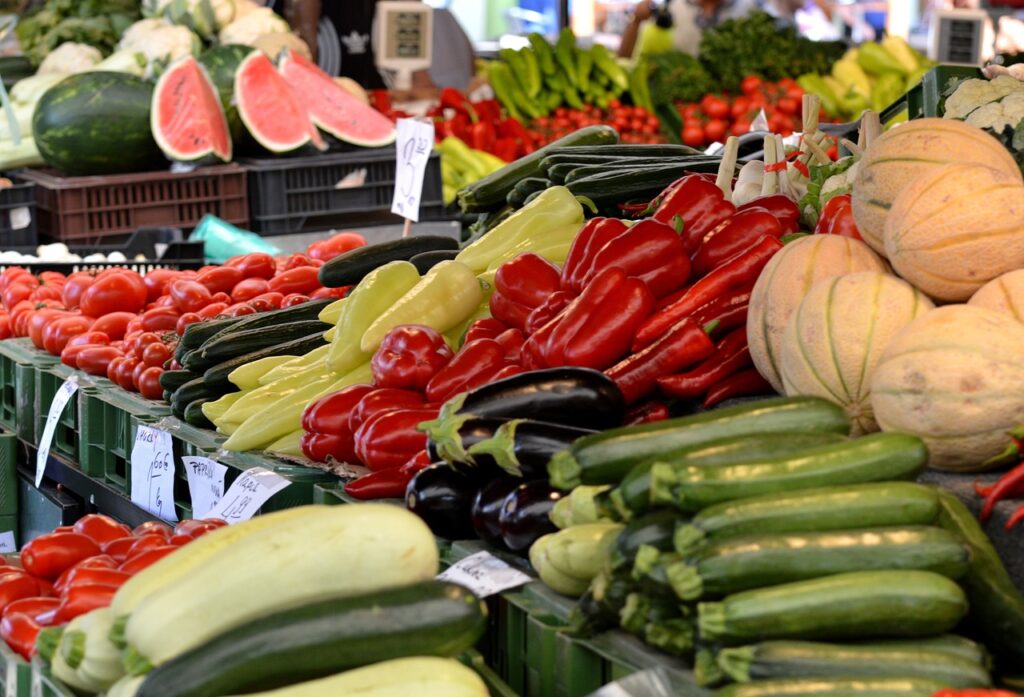A ROADSIDE STAND – Robert Frost
Table of Contents
Summary

“A Roadside Stand” is a poem by Robert Frost about a roadside stand that sells fruit and vegetables. The stand is located on the side of a busy road, where it is easy for travelers to see and stop. The speaker of the poem describes the various fruits and vegetables that are for sale at the stand, including apples, pears, and tomatoes.
The speaker also describes the people who run the stand, noting that they are hardworking and dedicated to their craft. They take pride in the quality of the produce they sell, and are always eager to help their customers.
Despite the busyness of the road, the roadside stand is a peaceful and tranquil place. The speaker suggests that the stand is a place of rest and refreshment for those who are traveling on the road.
Throughout the poem, the speaker reflects on the simple pleasures of life and the importance of hard work. The roadside stand serves as a symbol for the value of honest labor and the rewards that come with it.
Overall, “A Roadside Stand” is a tribute to the people who work hard to provide for others and to the simple joys of life. It is a reminder to appreciate the small things that bring us happiness and to be grateful for the hardworking people in our lives.
A ROADSIDE STAND Imp Questions and Answers
The city folk who drove through the countryside hardly paid any heed to the roadside stand or to the people who ran it. If at all they did, it was to complain. Which lines bring this out? What was their complaint about?
The lines that bring out the city folk’s lack of attention and complaints about the roadside stand are “The polished traffic passed with a mind ahead, / Or if ever aside a moment, then out of sorts / At having the landscape marred with the artless paint / Of signs that with N turned wrong and S turned wrong / Offered for sale wild berries in wooden quarts.” Their complaint is that the roadside stand and the signs advertising its goods are unsightly and mar the scenery.
What was the plea of the folk who had put up the roadside stand?
The plea of the folk who put up the roadside stand is implied in the lines “It would not be fair to say for a dole of bread, / But for some of the money, the cash, whose flow supports / The flower of cities from sinking and withering faint.” They are not asking for charity or a handout, but rather for the opportunity to make a living by selling their goods to passing cars.
The government and other social service agencies appear to help the poor rural people, but actually do them no good. Pick out the words and phrases that the poet uses to show their double
standards.
Words and phrases that the poet uses to show the double standards of government and social service agencies include “greedy good-doers,” “beneficent beasts of prey,” “enforcing benefits,” and “teaching them how to sleep so they sleep all day.” These phrases imply that these agencies are not truly helping the poor rural people, but rather exploiting them for their own gain.
What is the ‘childish longing’ that the poet refers to? Why is it ‘vain’?
The “childish longing” that the poet refers to is the longing of the roadside stand owners for connection and interaction with the passing cars and city folk. It is “vain” because their pleas for attention and business are largely ignored.
Which lines tell us about the insufferable pain that the poet feels at the thought of the plight of the rural poor?
The lines that describe the insufferable pain that the poet feels at the thought of the plight of the rural poor include “Sometimes I feel myself I can hardly bear / The thought of so much childish longing in vain, / The sadness that lurks near the open window there, / That waits all day in almost open prayer.” These lines convey the speaker’s deep sorrow and empathy for the suffering of the poor roadside stand owners.
